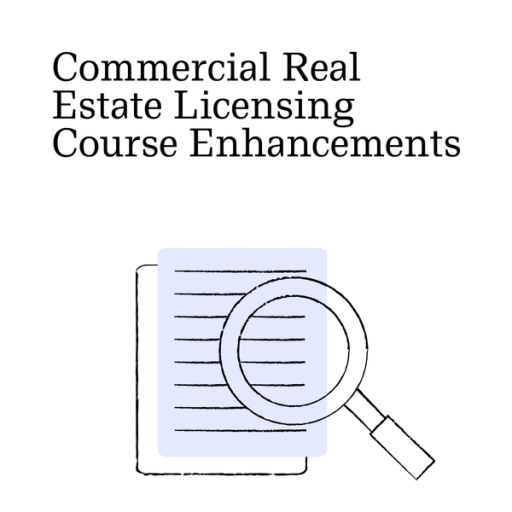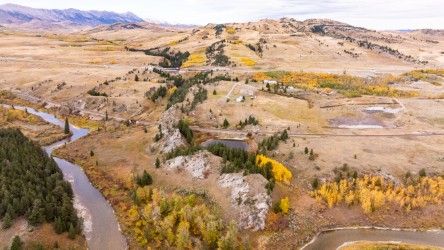November 19, 2025
2025 Fall Investment Grants
By Alberta Real Estate Foundation

In October, the Foundation's Board of Governors met to hear from the applicants to our Investment Grant program and award funds.
We awarded $1,753,715 to ten incredible projects that uplifting the industry and benefitting communities across the province. Check out our latest Investment Grant recipients and learn about their projects below:
Jasper Housing Enablement Initiative
Organization: mddl with the Municipality of Jasper
Grant amount: $250,000
This project addresses a critical gap by making sustainable development in Jasper easier and more accessible. By streamlining processes and providing practical education, it empowers local real estate professionals, residents, and government partners to tackle Jasper’s urgent housing needs. Through community engagement, policy work, education, and innovative tools, the initiative will help the community rebuild efficiently while revitalizing the local economy after devastating wildfires. The program connects and equips individuals, small-scale developers, and municipal planners to work together toward a shared goal: rebuilding Jasper in a way that meets community needs and creates lasting housing solutions.
Identifying Housing Potential on Alberta’s Main Streets
Organization: Canadian Urban Institute
Grant amount: $125,000
The Canadian Urban Institute (CUI) is leading a province-wide initiative to quantify the redevelopment potential of Alberta’s main streets, informing strategies to expand housing supply and revitalize local economies. CUI will analyze main streets in more than 300 municipalities to identify sites offering viable opportunities for infill housing. These findings will be publicly available to inform municipal policymakers and real estate industry professionals.
In collaboration with AREF, CUI will identify 3-5 municipalities seeking to better understand the potential of their own main streets to accommodate new housing. Through deeper case study analysis, CUI will map and visualize opportunities to transform under-utilized sites on main streets across a range of neighbourhoods in small towns and mid-sized cities.
Net Zero Targets & Changing Building Codes | Phase III: From Code to Resilience
Organization: Southern Alberta Institute of Technology
Grant amount: $195,000
This project will aim to support real estate professionals' capacities to guide their clients for climate-ready homes under the industrial complexities by boosting their knowledge and confidence in navigating the evolving energy code landscape. Focus will be on better supporting real estate professionals which includes enhancing the online platform, upgrading the toolkit, and continuing industry engagement to ensure relevance and usability.
Inclusive Housing Within the Bow Valley
Organization: Banff Pride Society
Grant amount: $103,715
This project is a Banff Pride-led initiative, delivered in partnership with the Rural Development Network, that will develop inclusive housing guidelines and practical toolkits to support safer, more accessible, and more equitable housing in the Bow Valley. Focused on staff housing and multi-tenant rentals, common in resort communities like Banff and Canmore, the project responds to persistent gaps identified by local social assessments and housing studies. Through community engagement and sector collaboration, the goal is to produce resources for landlords, developers, employers, municipalities, and tenants that support inclusive design, tenancy practices, and housing education. The outcomes will help improve housing access for 2SLGBTQIA+ residents, newcomers, and young workers, while offering a model that can be adapted by other communities across Alberta.
Leasing and Land Development Strategy for Chiniki First Nation
Organization: Chiniki First Nation with the Alberta Counsel
Grant amount: $250,000
This project will create a clear legal framework for leasing homes and businesses on reserve, making it easier for community members to access housing, insurance, and investment opportunities. Additionally, Chiniki will partner with a commercial real estate consultant to design a development strategy along its highway-front lands, exploring options such as gas stations, retail businesses, and green energy projects.
Rooted in Indigenous values and governance, the project aims to build community capacity, attract responsible investment, and guide growth in a way that reflects Chiniki's long-term priorities.
Canadian Climate Policy Partnership (C2P2)
Organization: University of Calgary, School of Public Policy
Grant amount: $150,000
The C2P2 inventory will include details on the building sector policies that will be communicated to real estate sector professionals and to the vaster audience through easily explained fact sheets and other resources. It will offer an analysis of the impact of current policies affecting commercial, residential, and public buildings across Canada, ensuring the database contains up-to-date information. The final goal of the project is to help the real estate industry and homeowners in Alberta to make informed decisions, through a better understanding of available benefits, from energy efficiency policies to financial incentives.Led by the University of Calgary’s School of Public Policy, the Canadian Climate Policy Partnership (C2P2) is a network of academics and institutions that makes information on Canadian climate policies accessible to the public. It has created the most comprehensive inventory on climate mitigation policies in Canada across many sectors, including the building industry.
Industry Guidance & Toolkit: Evaluating the Business Case for Adaptive Reuse & Circular Strategies for Repurposing Existing Buildings
Organization: Generate Canada
Grant amount: $150,000
Circular Economy Leadership Canada is developing a practical guide and business case toolkit to advance adaptive reuse and transformation in Alberta.
Co-created with local and national partners, it will show how reusing and repurposing commercial, institutional, and multi-unit residential buildings can reduce carbon, and create value for owners, developers, and the real estate community. The guide will include financial models, case studies, and tools to evaluate buildings, apply circular strategies, and assess carbon and cost benefits. Delivered through the Hub’s systems-change model, the project will convene industry and government, tests business cases through demonstration projects, and scale insights via knowledge sharing, policy briefs, and standards development. The guide will draw on insights and examples from leading adaptive reuse projects in Alberta and projects from across the country.
Land in Hand: Unlocking Farmland Access for the Next Generation of Growers
Organization: Agrarians Foundation (Young Agrarians)
Grant amount: $180,000
With soaring farmland values and an aging farmer demographic, Alberta is facing a farm renewal crisis. The average age of farmers is 57 years old (Statistics Canada, 2021) and 40% of farmers will retire by 2033 (RBC, 2024). At the same time, a growing number of people want to farm, but face significant barriers accessing farmland.
“Land in Hand” supports farmers to access land through a pilot Alberta Land Matching Program. The program provides personalized land matching services to farmers looking for land to start or expand their farm, and landholders interested in finding someone to farm their land. Land matching services help farmers to build viable businesses, which results in more vibrant and resilient rural communities. The project will also work with and support real estate professionals to better understand the needs of tomorrow’s farmers. Training and education around land access for farmers will lead to opportunities for growth in the rural real estate industry.
Trees Matter: Safeguarding Alberta’s Real Estate and Landscapes from Invasive Pests
Organization: Alberta Invasive Species Council
Grant amount: $100,000
Alberta’s trees are vital assets that enhance property value and community well-being, but they face a serious threat from invasive pests. To address this risk, the Alberta Invasive Species Council will develop the Urban Forest Pest Guide and a free companion e-learning course. These practical, accessible tools will empower homeowners, real estate professionals, and industry to identify pest threats early and take action to protect our valuable urban canopy, ensuring our communities remain green, vibrant, and livable.
REET AI Lab
Organization: PotentialU Education Society (The REET Institute)
Grant amount: $250,000
The REET AI Lab is Canada’s first innovation hub dedicated to responsible artificial intelligence in the commercial real estate (CRE) sector. Through collaboration between industry leaders, technologists, and youth, the Lab will explore how AI can transform real estate workflows—from leasing and permitting to asset management—while prioritizing ethics, governance, and inclusion. Project activities include developing a Foundations of AI in CRE education module in the REET App, convening the REET AI Council to co-author an industry whitepaper, and piloting AI solutions with real-world partners. By combining research, training, and practical tools, the REET AI Lab equips professionals and students with the knowledge and standards needed to navigate an AI-driven future in real estate.
Contributor

Alberta Real Estate Foundation
The Alberta Real Estate Foundation invests in real estate* policy, research, practices, and education that strengthen Alberta’s communities.
Similar News


